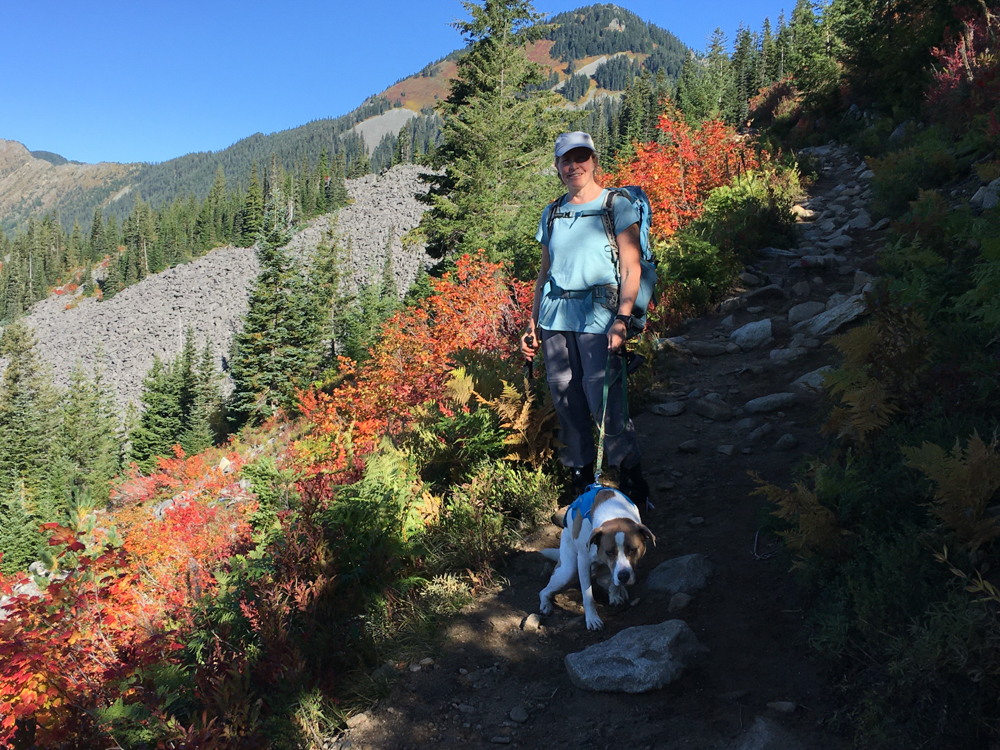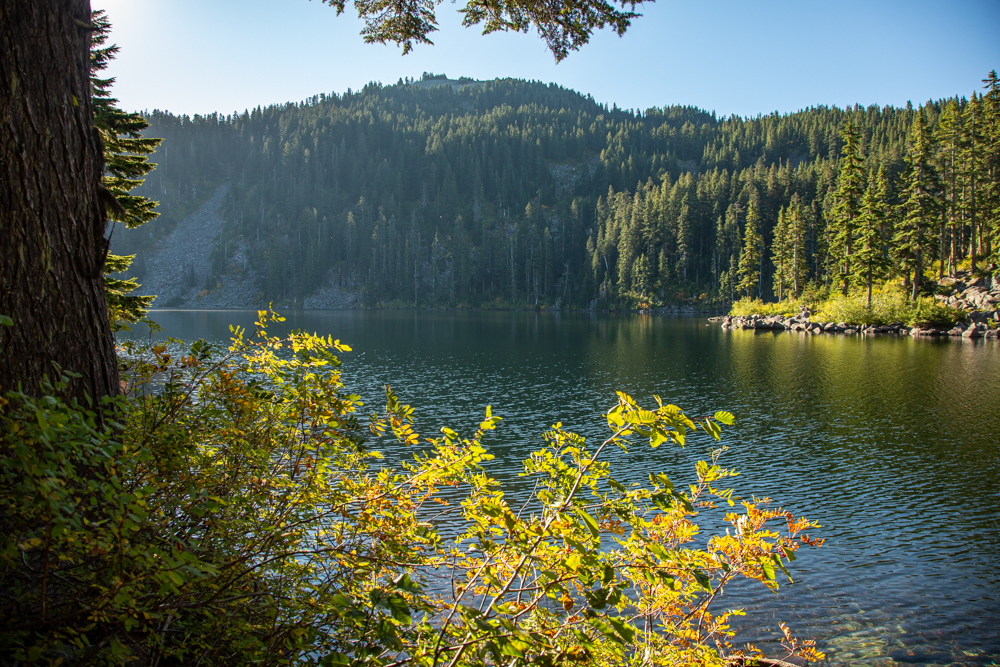As I worked on blog post ten this week (twenty percent of the way toward my blogging goal), I hit a few snags and couldn’t get unstuck. (See, it happens to everyone!) The problems? First, I needed more time to do justice to my top choice for the week’s post; and second, the flood of other possible ideas overwhelmed me. I ground to a halt, and if not for my deadline of a blog a week, I might have stayed stuck. I decided my top priority was to limit choices.

Unlimited Choice Can Be As Hard As Having Too Few
But my problem pales in comparison to what my daughter, a senior in high school, currently faces. What is the best way to coach her through the college application and selection process? She sometimes finds it hard to choose a cookie recipe to make or a frozen yogurt flavor to order. With hundreds of potential colleges, what’s the best way to narrow them down? If she could find a dozen that interested her, we’d help her apply to the top six. After all, what worked for me way back when could at least be a starting point.
I also faced what I call the “all-or-nothing” phenomenon earlier this week. I had an opportunity to hike on Tuesday, but I couldn’t decide on a destination. My non-decision ended up being my decision: I stayed in town on a beautiful day.
Later in the week when a friend proposed hiking to Mason Lake, I agreed. I appreciate it when someone else decides. Other times, it feels liberating to make my own choice. But sometimes, having unlimited choices is daunting.

How to Start Narrowing Down
So where do you start if you feel like you want to make changes? Say you want to alter your diet, start a different job, take steps forward in an important relationship, grab some new travel opportunities, expand your friendship circle, interact more with family members, and improve your physical health.
If you tried undertaking all of that at once, you would fail to succeed in any of them. What do you do if you want to change everything? The answer may be to limit your choices first by picking THE MOST IMPORTANT GOAL (whatever is weighing most heavily on your mind) and to provide yourself with a structure to explore it.
Whenever I face a blank page, it’s far easier to create if I’m given a prompt, an idea, or a structure within which to write. Take blogging: I limit myself to eight photos, keep my word count under 1200, and stick to the same format I’ve used during the past three months. I also tie whatever I write to the broad topic of moving forward and getting unstuck. Such scaffolding provides me with structure and coherence, and it provides my readers with continuity from post to post. Even so, I still face plenty of choices but it’s not as overwhelming as it could be.

On Having Too Many Choices
Curious about shutting down when I feel overwhelmed by too many choices, I looked online to learn what others had to say. Suddenly, I had my topic for this week’s blog.
From the article, Too many choices – good or bad – can be mentally exhausting. In the April issue of Journal of Personality and Social Psychology, 2008, Kathleen Vohs discusses how making decisions, even about fun tasks like what movie to see or where to hike, can deplete our brain. “Simply the act of choosing can cause mental fatigue,” she says. “Making choices can be difficult and taxing, and there is a personal price to choosing.”
In a study discussed in the article Why you find it hard to pick your lunch or a Netflix show, according to new research, Colin Camerar (professor of behavioral economics at Caltech and author of the study) said the “ideal number [of choices] is probably somewhere between 8 and 15, depending on the reward, and your personality.”

When “Good Enough” is Good Enough
And in Too Many Choices, a Problem that can Paralyze, Alina Tugend of the New York Times introduces Barry Schwartz, author of The Paradox of Choice. Schwartz says one strategy for dealing with too many choices is to become comfortable with the idea of “good enough.”
In coaching our daughter through the largest decision (so far) of her young life, we don’t want her to think she has to make a perfect choice, because according to the Swarthmore professor, doing so “is a recipe for misery.” If we can get past the illusion that there is a “perfect choice” and choose good enough, we will save ourselves pondering and reflection time, worry, and angst.

Take-Aways
The next time you’re debating about what to choose, impose some restrictions. If you’re experiencing writer’s block, set a timer for five minutes and allow yourself to play. Let your pen move nonstop across the page, or let your fingers fly over the keyboard. Or get outside in nature for some fresh air and movement. Sometimes taking your mind off the problem will give your creative self some inspiration or clarity.
If you have the whole state of Washington available to hike in, try narrowing it down to a single target area, with a possible elevation gain and range that fits your ability and mood. Washington Trails Association’s Hike Finder is a great resource.
And when I discovered the guideline of having an optimal number of choices in the range of eight to fifteen, I realized that encouraging my daughter to have a list of her top twelve choices is a reasonable place to start. What’s more, I realized we intuitively already know how to do this.
So if you’re dating a new person every weekend, put some limits on your choices. If you’re looking at the whole world as a possible travel destination, pick one or two areas to start narrowing down. And when you’re choosing a subject to write about, realize that you can always write another, next week. I did. And like that, I was up and writing again.



I started to think about what comment to post about yet another very interesting blog entry… and I got stuck… how ironic! The post just triggered too many thoughts… too many choices to pick from.
So I decided to just PICK ONE: which trail to hike during the next outing? I have agonized over making the “right” choice of trail too many times. Gradually, I came to look at it differently. My notion of “right” was based on a flurry of outside opinions/influences and what felt to me like a fairly narrow interpretation of what makes a trail “right” or “great”: it has to be spectacular in some predefined way… typically “fantastic views” … or it has to present some “awesome physical challenge”.
Instead of automatically going with the commonly accepted criteria, I asked myself: WHY do I want to hike? THAT should help me determine the right trail(S) for me. Surprisingly enough, seeing world-class views and pushing my body to the limit are not in the top 5! They are in the list… but they are not the most closely aligned with my core objectives, informed by my core values. I want to spend time in nature because I belong there in fundamental ways; I want to feel the original rhythm of life; I want to look for beauty where it is more subtle and elusive. With these top 3 in mind, most trails suddenly became RIGHT.
An example fresh off the boots: this weekend I backpacked 34 miles in the central cascades, 95% of the route was through dense forests and “without views”, and more than half used trails very seldom used because “they lead nowhere special”. During a break, I found myself surrounded by a small flock of grouses, totally unimpressed by my presence. As my mind mused about the miles ahead, I came upon a small marsh where four Great Blue Herons vociferously objected to my walking by. As I progressed through a dusty and bone-dry 6 miles stretch, I suddenly came upon an ice-cool little stream going about its flowing business totally indifferent to the presence or absence of hikers; what a bliss to drink from it (using my filtering device). What a great trail that was!
Pushing myself to fully define what RIGHT or BEST meant for ME unlocked a good portion of the “right trail” riddle… and I can’t wait to hike to that fabulous waterfall, on the way to a knife-edge ridge overlooking the sunbaked valley below 🙂 Oh nooo! Did I leave the camera in the car at the trailhead????
What a wonderful share!! You are right on with “all trails become right” — if we keep in mind why we’re out there to begin with. And digging deep into your “why” is a fantastic example of how deeply personal our ventures into nature are.
I love your tie-in to how you had to dig deeper to figure out what topic to pursue in your reply. The images you conjure of the grouse flock, the herons, and stream — THESE are exactly why so many of us hike. Oh, to visit this area a hundred years ago before they got so crowded…
With my little canine companion, I have learned that my previous “bag the peak” tendencies have lessened. As we started exploring a new-to-me narrow ridge trail beyond Bandera’s summit, I realized with a start how horrible I would feel if he slipped over the sharp cliff edge. That was enough for me to turn around and say, “Nope, not for us. Not today.” Shoot on and keep enjoying nature for all She has to share with you.
Some people are happy with “good is enough” and other people aren’t happy. Overtime people with lesser choices seem to be happier. Seeking perfection also can create lots of anxiety and deception.
It could be interesting to explore the number of choices as we age. It probably goes down.
Interesting topic…sorry for the rambling…great photos.
Thanks, Silvie-Marie. You raise some interesting points. If I may clarify, the difference between “good enough” and “good is enough” — “good enough” means not expecting perfection, which you point out creates anxiety and disappointment if not attained. “good is enough” on the other hand brings up the relative measures of “good”, “great” and “excellent.” I believe we would all benefit from at least STRIVING for excellence in all we do, but being satisfied as long as we give it OUR ALL, and do OUR BEST.
Your idea about exploring the number of choices as we age is thought-provoking. I look at my diet, for example, which gives me far less choice than I had as a youngster and could get away with junk food and sweets. The “margin for error” is much smaller as an over-50 person, so even though I have less choice, I’m much healthier not eating those foods that probably shouldn’t have been in my diet to begin with. Great observation. Thanks for the comment!